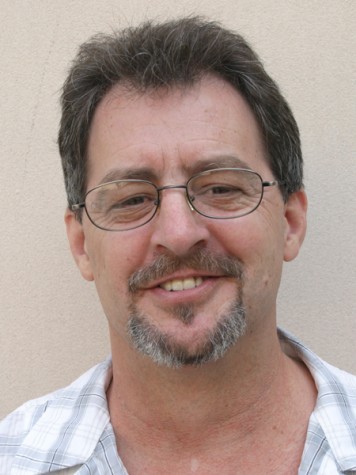Leaving behind the alternative metal and rap rock that gave it its claim to fame in the music industry, Linkin Park has chosen to pursue a risky route with its fourth studio album, “A Thousand Suns.”
Linkin Park has taken such a different direction with its new music, that this album may well be considered a turning point for the band.
Instead of the distinct rock beats and metal sound that characterize songs in “Hybrid Theory,” “Meteora” and “Minutes to Midnight,” the band has replaced these elements with slower tempos and a heavier use of synthesizers.
Whether or not this album matches up to the previous three will all depend on the expectations of the listeners.
“A Thousand Suns” has 15 tracks, each one unlike any other on the record.
The brief opening tracks, “The Requiem” and “The Radiance,” give listeners a feel for the theme of the album. “The Requiem” begins softly and gradually builds up to a point where synthesized voices sing, “God save us everyone.Will be burned.Inside the fires of a thousand suns.”
In “The Radiance,” the voice of J. Robert Oppenheimer, quotes the Bhagavad Gita (a Hindu scripture), “Now I am become Death, the destroyer of worlds.”
Oppenheimer is often called the “father” of the atomic bomb. He also famously quoted another line from the Bhagavad Gita: “If the radiance of a thousand suns were to burst at once into the sky, that would be like the splendor of the mighty one.” From this, the band derived the title “A Thousand Suns” as well as the concept for the album, which generally deals with war and nuclear warfare.
Of all the tracks on Linkin Park’s new album, “Burning in the Skies,” “Waiting for the End,” “Robot Boy” and “The Catalyst” are the four standout songs.
Synthesizers and electronic beats are characteristics of the band’s new sound, and are evident in songs like “Burning in the Skies” and “Waiting For The End.” Lead singer Chester Bennington and vocalist Mike Shinoda split the vocal responsibilities in these tracks fairly equally.
Both tracks peak at a rather safe level of intensity. The high point of “Burning in the Skies” comes at 2:38 with a modest 29-second solo. “Waiting For The End” reaches its climax toward the end, where synth guitars combined with the electronic beats make the beats make the music more dynamic, and where lead singer Chester Bennington’s singing overlaps with the rapping of vocalist Mike Shinoda.
The song “Robot Boy” begins as what sounds like a piano ballad, and may as well be considered one. Bennington and Shinoda harmonize so flawlessly in this track that appreciation for their vocals is inevitable. Toward the end, Bennington’s screaming is blended nicely into the background.
The powerful lyrics of “The Catalyst,” the first single released from this record, reflect the album’s theme: “God bless us everyone/We’re a broken people living under loaded gun/And it can’t be outfought, it can’t be outdone/It can’t be outmatched, it can’t be outrun, no.”
Although many of the band’s new songs are slower than those on their previous releases, a few of the tracks sound more upbeat than the rest.
“When They Come For Me” and “Blackout” are two songs that convey a head-banging feeling.
The first of these two relies on heavy beats, guitar, and heavy rapping from Shinoda for the first three minutes of the song.
Together with synth piano, heavy beats and guitar, Bennington delivers his most powerful performance by screaming for more than half of “Blackout.”
“Wretches and Kings” is introduced with part of the speech given by political activist Mario Savio at the beginning of the Free Speech Movement. It relies on similar instrumental and vocal qualities as the other two upbeat songs on the record. The last several seconds also includes record scratching, which is a nice touch because the sound effect is characteristic of their previous recordings.
Several brief numbers in the album allow the band to maintain the consistency of the political themes and also provide transitions between the songs.
Tracks like “Empty Spaces” and “Wisdom, Justice, and Love” feature the sounds of gunshots, and parts of Martin Luther King Jr.’s “A Time to Break Silence” speech recorded over piano, respectively.
Other tracks, like “Jornada Del Muerto,” which transitions out from “Robot Boy,” along with “Fallout,” which transitions into “The Catalyst,” seem to serve the purpose of tying some songs together.
Aside from “Robot Boy,” “Iridescent” and “The Messenger” are two of the slower tempoed tracks on the album.
Gentler beats, strings and vocals help to create a mellower tone for “Iridescent.”
“The Messenger,” is an acoustic surprise that wraps up “A Thousand Suns.” It is an arrangement of guitar, strings and piano. It seems as if Bennington is trying to scream appropriately for this song, but even after listening to it a number of times, it takes some getting used to.
The band isn’t exactly known for songs like these, and there isn’t anything like it on any of its previous records. Despite this fact, the lyrics are still meaningful, especially where Bennington nearly screams: “When love leaves us blind/Love keeps us kind.”
Listeners looking for songs similar to “In the End” or “Numb” will probably be disappointed with “A Thousand Suns,” because there aren’t any. The lyrics on this record are somewhat more repetitive than those in previous releases, and the use of synthesizers on all of the tracks may negatively shock fans.
However, those who give these songs a chance will learn to appreciate the music and lyrics, the thought behind the album, and the risk that the band took in growing musically.


